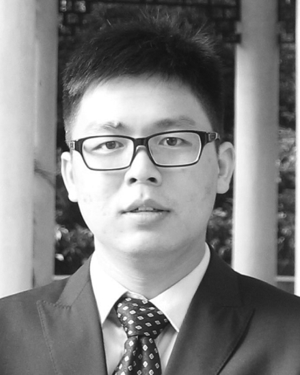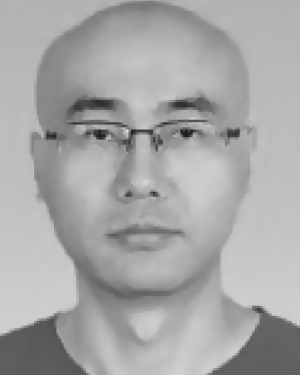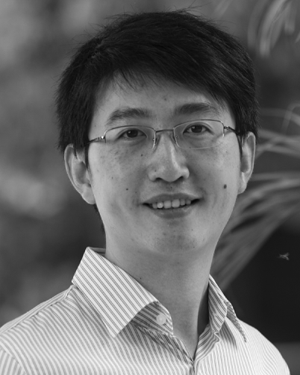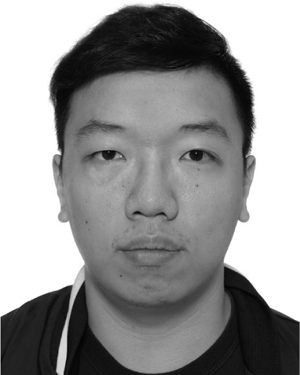Abstract:
Safe Browsing (SB) is an important security feature in modern web browsers to help detect new unsafe websites. Although useful, recent studies have pointed out that the w...Show MoreMetadata
Abstract:
Safe Browsing (SB) is an important security feature in modern web browsers to help detect new unsafe websites. Although useful, recent studies have pointed out that the widely adopted SB services, such as Google Safe Browsing and Microsoft SmartScreen, can raise privacy concerns since users’ browsing history might be subject to unauthorized leakage to service providers. In this paper, we present a Privacy-Preserving Safe Browsing (PPSB) platform. It bridges the browser that uses the service and the third-party blacklist providers who provide unsafe URLs, with the guaranteed privacy of users and blacklist providers. Particularly, in PPSB, the actual URL to be checked, as well as its associated hashes or hash prefixes, never leave the browser in cleartext. This protects the user’s browsing history from being directly leaked or indirectly inferred. Moreover, these lists of unsafe URLs, the most valuable asset for the blacklist providers, are always encrypted and kept private within our platform. Extensive evaluations using real datasets (with over 1 million unsafe URLs) demonstrate that our prototype can function as intended without sacrificing normal user experience, and block unsafe URLs at the millisecond level. All resources, including Chrome extension, Docker image, and source code, are available for public use.
Published in: IEEE Transactions on Dependable and Secure Computing ( Volume: 18, Issue: 4, 01 July-Aug. 2021)
Funding Agency:

School of Computer Science, Northwestern Polytechnical University, Xi'an, Shaanxi, China
Helei Cui received the BE degree in software engineering from Northwestern Polytechnical University, in 2010, the MS degree in information engineering from The Chinese University of Hong Kong, in 2013, and the PhD degree in computer science from the City University of Hong Kong, in 2018. He is currently an associate professor with the School of Computer Science, Northwestern Polytechnical University, China. His research i...Show More
Helei Cui received the BE degree in software engineering from Northwestern Polytechnical University, in 2010, the MS degree in information engineering from The Chinese University of Hong Kong, in 2013, and the PhD degree in computer science from the City University of Hong Kong, in 2018. He is currently an associate professor with the School of Computer Science, Northwestern Polytechnical University, China. His research i...View more

School of Cyber Science and Technology, College of Computer Science and Technology, Zhejiang University, Hangzhou, Zhejiang, China
Yajin Zhou received the PhD degree in computer science from North Carolina State University, Raleigh, NC. He is currently a ZJU 100 Young professor with the School of Cyber Science and Technology, and the College of Computer Science and Technology, Zhejiang University, China. His research mainly focuses on smartphone and system security, such as identifying real-world threats and building practical solutions, mainly in th...Show More
Yajin Zhou received the PhD degree in computer science from North Carolina State University, Raleigh, NC. He is currently a ZJU 100 Young professor with the School of Cyber Science and Technology, and the College of Computer Science and Technology, Zhejiang University, China. His research mainly focuses on smartphone and system security, such as identifying real-world threats and building practical solutions, mainly in th...View more

Department of Computer Science, City University of Hong Kong, Hong Kong, China
Cong Wang (SM’17) received the BE degree in electronic information engineering and ME degree in communication and information system from Wuhan University, China, and the PhD degree in electrical and computer engineering from the Illinois Institute of Technology. He is currently an associate professor with the Department of Computer Science, City University of Hong Kong. His current research interests include data and com...Show More
Cong Wang (SM’17) received the BE degree in electronic information engineering and ME degree in communication and information system from Wuhan University, China, and the PhD degree in electrical and computer engineering from the Illinois Institute of Technology. He is currently an associate professor with the Department of Computer Science, City University of Hong Kong. His current research interests include data and com...View more

Department of Computer Science, City University of Hong Kong, Hong Kong, China
Xinyu Wang received the BE degree in software engineering from East China Jiaotong University, in 2011. He is currently working towards the PhD degree in the Department of Computer Science, City University of Hong Kong. He worked for Tencent as a software engineer from 2011 to 2013. His research interests include cloud computing, network security, and big data.
Xinyu Wang received the BE degree in software engineering from East China Jiaotong University, in 2011. He is currently working towards the PhD degree in the Department of Computer Science, City University of Hong Kong. He worked for Tencent as a software engineer from 2011 to 2013. His research interests include cloud computing, network security, and big data.View more

Department of Computer Science, City University of Hong Kong, Hong Kong, China
Yuefeng Du received th BS degree in computer science from the Department of Computer Science, City University of Hong Kongin, 2018. He is currently working towards the PhD degree in the Department of Computer Science, City University of Hong KongHis research interests include cloud storage security, computer security, and artificial intelligence security.
Yuefeng Du received th BS degree in computer science from the Department of Computer Science, City University of Hong Kongin, 2018. He is currently working towards the PhD degree in the Department of Computer Science, City University of Hong KongHis research interests include cloud storage security, computer security, and artificial intelligence security.View more

Shenzhen Research Institute, City University of Hong Kong, Shenzhen, Guangdong, China
Qian Wang (SM’18) received the BS degree in electrical engineering from Wuhan University, China, in 2003, the MS degree in electrical engineering from the Shanghai Institute of Microsystem and Information Technology, Chinese Academy of Sciences, China, in 2006, and the PhD degree in electrical engineering from the Illinois Institute of Technology, in 2012. He is currently a professor with the School of Cyber Science and E...Show More
Qian Wang (SM’18) received the BS degree in electrical engineering from Wuhan University, China, in 2003, the MS degree in electrical engineering from the Shanghai Institute of Microsystem and Information Technology, Chinese Academy of Sciences, China, in 2006, and the PhD degree in electrical engineering from the Illinois Institute of Technology, in 2012. He is currently a professor with the School of Cyber Science and E...View more

School of Computer Science, Northwestern Polytechnical University, Xi'an, Shaanxi, China
Helei Cui received the BE degree in software engineering from Northwestern Polytechnical University, in 2010, the MS degree in information engineering from The Chinese University of Hong Kong, in 2013, and the PhD degree in computer science from the City University of Hong Kong, in 2018. He is currently an associate professor with the School of Computer Science, Northwestern Polytechnical University, China. His research interests include cloud security, mobile security, and multimedia security.
Helei Cui received the BE degree in software engineering from Northwestern Polytechnical University, in 2010, the MS degree in information engineering from The Chinese University of Hong Kong, in 2013, and the PhD degree in computer science from the City University of Hong Kong, in 2018. He is currently an associate professor with the School of Computer Science, Northwestern Polytechnical University, China. His research interests include cloud security, mobile security, and multimedia security.View more

School of Cyber Science and Technology, College of Computer Science and Technology, Zhejiang University, Hangzhou, Zhejiang, China
Yajin Zhou received the PhD degree in computer science from North Carolina State University, Raleigh, NC. He is currently a ZJU 100 Young professor with the School of Cyber Science and Technology, and the College of Computer Science and Technology, Zhejiang University, China. His research mainly focuses on smartphone and system security, such as identifying real-world threats and building practical solutions, mainly in the context of embedded systems (or IoT devices).
Yajin Zhou received the PhD degree in computer science from North Carolina State University, Raleigh, NC. He is currently a ZJU 100 Young professor with the School of Cyber Science and Technology, and the College of Computer Science and Technology, Zhejiang University, China. His research mainly focuses on smartphone and system security, such as identifying real-world threats and building practical solutions, mainly in the context of embedded systems (or IoT devices).View more

Department of Computer Science, City University of Hong Kong, Hong Kong, China
Cong Wang (SM’17) received the BE degree in electronic information engineering and ME degree in communication and information system from Wuhan University, China, and the PhD degree in electrical and computer engineering from the Illinois Institute of Technology. He is currently an associate professor with the Department of Computer Science, City University of Hong Kong. His current research interests include data and computation outsourcing security in the context of cloud computing, blockchain and decentralized application, network security in emerging Internet architecture, multimedia security, and privacy-enhancing technologies in the context of big data and IoT. He is one of the Founding Members of the Young Academy of Sciences of Hong Kong. He received the Outstanding Research Award in 2019, the Outstanding Supervisor Award in 2017, and the President’s Awards in 2016 from City University of Hong Kong. He is a co-recipient of the Best Student Paper Award of IEEE ICDCS 2017, the Best Paper Award of IEEE ICPADS 2018, MSN 2015 and CHINACOM 2009. His research has been supported by multiple government research fund agencies, including National Natural Science Foundation of China, Hong Kong Research Grants Council, and Hong Kong Innovation and Technology Commission. He serves/has served as associate editor for the IEEE Transactions on Dependable and Secure Computing (TDSC), the IEEE Internet of Things Journal (IoT-J) and the IEEE Networking Letters, and TPC co-chairs for a number of IEEE conferences/workshops. He is a senior member of the IEEE, and member of the ACM.
Cong Wang (SM’17) received the BE degree in electronic information engineering and ME degree in communication and information system from Wuhan University, China, and the PhD degree in electrical and computer engineering from the Illinois Institute of Technology. He is currently an associate professor with the Department of Computer Science, City University of Hong Kong. His current research interests include data and computation outsourcing security in the context of cloud computing, blockchain and decentralized application, network security in emerging Internet architecture, multimedia security, and privacy-enhancing technologies in the context of big data and IoT. He is one of the Founding Members of the Young Academy of Sciences of Hong Kong. He received the Outstanding Research Award in 2019, the Outstanding Supervisor Award in 2017, and the President’s Awards in 2016 from City University of Hong Kong. He is a co-recipient of the Best Student Paper Award of IEEE ICDCS 2017, the Best Paper Award of IEEE ICPADS 2018, MSN 2015 and CHINACOM 2009. His research has been supported by multiple government research fund agencies, including National Natural Science Foundation of China, Hong Kong Research Grants Council, and Hong Kong Innovation and Technology Commission. He serves/has served as associate editor for the IEEE Transactions on Dependable and Secure Computing (TDSC), the IEEE Internet of Things Journal (IoT-J) and the IEEE Networking Letters, and TPC co-chairs for a number of IEEE conferences/workshops. He is a senior member of the IEEE, and member of the ACM.View more

Department of Computer Science, City University of Hong Kong, Hong Kong, China
Xinyu Wang received the BE degree in software engineering from East China Jiaotong University, in 2011. He is currently working towards the PhD degree in the Department of Computer Science, City University of Hong Kong. He worked for Tencent as a software engineer from 2011 to 2013. His research interests include cloud computing, network security, and big data.
Xinyu Wang received the BE degree in software engineering from East China Jiaotong University, in 2011. He is currently working towards the PhD degree in the Department of Computer Science, City University of Hong Kong. He worked for Tencent as a software engineer from 2011 to 2013. His research interests include cloud computing, network security, and big data.View more

Department of Computer Science, City University of Hong Kong, Hong Kong, China
Yuefeng Du received th BS degree in computer science from the Department of Computer Science, City University of Hong Kongin, 2018. He is currently working towards the PhD degree in the Department of Computer Science, City University of Hong KongHis research interests include cloud storage security, computer security, and artificial intelligence security.
Yuefeng Du received th BS degree in computer science from the Department of Computer Science, City University of Hong Kongin, 2018. He is currently working towards the PhD degree in the Department of Computer Science, City University of Hong KongHis research interests include cloud storage security, computer security, and artificial intelligence security.View more

Shenzhen Research Institute, City University of Hong Kong, Shenzhen, Guangdong, China
Qian Wang (SM’18) received the BS degree in electrical engineering from Wuhan University, China, in 2003, the MS degree in electrical engineering from the Shanghai Institute of Microsystem and Information Technology, Chinese Academy of Sciences, China, in 2006, and the PhD degree in electrical engineering from the Illinois Institute of Technology, in 2012. He is currently a professor with the School of Cyber Science and Engineering, Wuhan University. He received National Science Fund for Excellent Young Scholars of China in 2018. He is also an expert under the National “1000 Young Talents Program” of China. His research interests include AI security, data storage, search and computation outsourcing security and privacy, wireless systems security, big data security and privacy, and applied cryptography. He was a recipient of the IEEE Asia-Pacific Outstanding Young Researcher Award 2016. He was also a co-recipient of several Best Paper and Best Student Paper Awards from IEEE ICDCS’17, IEEE Trust-Com’16, WAIM’14, and IEEE ICNP’11. He serves as an associate editor for the IEEE Transactions on Dependable and Secure Computing (TDSC) and the IEEE Transactions on Information Forensics and Security (TIFS). He is a senior member of the IEEE, and member of the ACM.
Qian Wang (SM’18) received the BS degree in electrical engineering from Wuhan University, China, in 2003, the MS degree in electrical engineering from the Shanghai Institute of Microsystem and Information Technology, Chinese Academy of Sciences, China, in 2006, and the PhD degree in electrical engineering from the Illinois Institute of Technology, in 2012. He is currently a professor with the School of Cyber Science and Engineering, Wuhan University. He received National Science Fund for Excellent Young Scholars of China in 2018. He is also an expert under the National “1000 Young Talents Program” of China. His research interests include AI security, data storage, search and computation outsourcing security and privacy, wireless systems security, big data security and privacy, and applied cryptography. He was a recipient of the IEEE Asia-Pacific Outstanding Young Researcher Award 2016. He was also a co-recipient of several Best Paper and Best Student Paper Awards from IEEE ICDCS’17, IEEE Trust-Com’16, WAIM’14, and IEEE ICNP’11. He serves as an associate editor for the IEEE Transactions on Dependable and Secure Computing (TDSC) and the IEEE Transactions on Information Forensics and Security (TIFS). He is a senior member of the IEEE, and member of the ACM.View more


